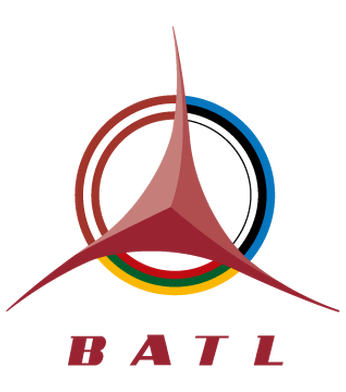Stevedores from Ventspils, Liepaja and Riga sea ports, as well as representatives of state institutions tied to the sector gathered for an expanded meeting of the council of Latvian Stevedoring Company Association in Ventspils last week. Officials discussed a number of existing challenges and topics related to sustainable development of the sector.
Although indexes for freight transports by rail and through Latvian sea ports turned out better in the first half-year, with Ventspils, for example, seeing 25.4% more freight when compared to the same period of 2021, Freeport of Riga seeing 11.5% more, Liepaja seeing 15.2% more, and railway freight volumes increasing by 17.6%, one of the main existing challenges remains the attraction of new freight and the sector’s continued restructuring.
According to vice-chairman of Latvian Stevedoring Company Association, board chairman of Baltic Association – Transport and Logistics Ivars Landmanis, successful cooperation with Kazakhstan and Uzbekistan allows for looking at the future with cautious optimism.
“Cooperation with these Central Asian countries is important for businessmen, but it is no less important for this cooperation to also contribute to maintenance of sea port infrastructure,” said the head of BATL.
To encourage new partners to participate, Latvia cannot afford unreasonable decisions from public authorities in regards to any freight segment in the country. LSA stresses that coal that is transported through Latvia from Kazakhstan is intended for European consumers. This means this type of cargo is a fundamentally important product to ensure energy independence of the entire European Union. This is why LSA also touched on the topic of Latvian Railway (LDz) tariffs for this type of freight.
The topic of progress with the sea port reform and how the Ministry of Transport may participate in efforts to battle the industry’s existing challenges is equally important. It is clear continued development of the sea port sector requires projects focused on the sector’s transformation and modernisation. This is why LSA has already started working on new infrastructure projects, new value added services, as well as successful Latvian and Baltic exports using Latvia’s sea ports.
During the meeting, participants reviewed and debated eight important topics that extend to the sea port sector. Representatives from the Ministry of Transport, LDz, Maritime Administration of Latvia, State Environment Service, State Revenue Service’s Customs Office and State Border Guard reported on areas in which it is possible to improve cooperation, and listed transit-related challenges.
Among the topics discussed by participants of the meeting were topics like digitisation of sea port terminals, SKLOIs modernisation and introduction of vertical reports in the Baltic Sea region, improvement and speeding up of customs procedures, energy development at sea ports, the order for the issue of A, B, and C category permits, introduction of sanctions and their monitoring, financial support, overcoming the crisis in the industry, etc.
As for financial support, there is the topic of sea port territory lease discounts for port-based businessmen if the volume of freight handled by sea ports continues going down. The European Union has banned imports of Russian coals (the only exception is coal transit through Lithuania to Kaliningrad). It is still allowed to work with Russian petrol products until 4 December 2022.
Companies that work with handling of petrol products are put in a very difficult situation, resolving which will require reaching a compromise with state institutions. As Kurzeme TV was told by LSA council chairman Āris Ozoliņš, Ministry of Transport, Ministry of Economics and Ministry of Finances will be brought in to assist if necessary.
Since the EU and U.S. governments have imposed sanctions on Russia and Belarus, the situation in Latvia is far from easy. Nevertheless, businessmen are looking for opportunities to refocus their operations. Many important steps have been made already. For example, LSA as the main stevedores and transit sector organisation actively assists businesses with new diversification and development options.
The transit sector contributes much to Latvia’s economy despite the declining freight volumes. This is affirmed by customs statistics, according to which in the first half-year of 2022 alone export volumes to third countries through Riga, Ventspils and Liepaja sea ports reached EUR 2.02 billion or 67.2% of the total export value. Compared to the same period of 2021, it has increased by 18.9%. The increase of import volumes from third countries was 52% when compared to last year’s first half-year. The value of these imports was EUR 1.27 billion or 39.8% of total value of imports.
The next expanded LSA council meeting will take place in Riga and will include representatives from Riga’s businessmen.


